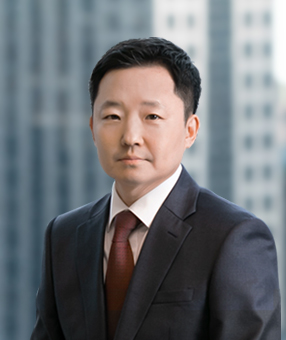On July 30, 2018, the Ministry of Economy and Finance announced its proposed tax law amendments. Within the proposed amendments (the “Proposed Amendment”), a special provision was introduced to address instances where an Overseas Investment Vehicle (“OIV”) would be treated as the beneficial owner of Korea source income.
The Proposed Amendment was finalized in December 2018, and the law will become effective as of January 1, 2020.
Background:
Under the current Korean Tax Law, if capital gains are earned from the share transfer, such Korea source income is taxable in Korea.
Specifically, the Korean Tax Law provides that the Korea source income attributed to the Beneficial Owner(s) (“BO”) can be exempt if: (i) foreign investors who invest in shares in a Korean company through an OIV are BO of the Korea source income; (ii) the country having jurisdiction of the BO has made a tax treaty with the Republic of Korea; and (iii) Korea source income derived from the share transfer can be exempt based on such a tax treaty. Also, in order for each BO to be allowed the tax exemption, each BO must fill out a form prescribed by the Korean Tax Law, and submit it to the Korean tax authorities. These provisions in the Korean Tax Law are generally referred to as the “OIV Regime.”
In the meantime, before the OIV Regime was newly introduced in the Corporate Tax Law, in 2013, the Supreme Court decided that the BOs for capital gains on the share transfer were not foreign investors who invested in overseas funds – similar to OIV – but overseas funds themselves. Based on this, the Korean tax authorities has regarded overseas funds as a BO, and has imposed the share transfer income tax according to the Korean Tax Law, since there is no tax treaty between Korea and the country where the overseas fund is located.
Since then, the OIV Regime has been introduced, but the Supreme Court decision and the purpose of the OIV Regime are in conflict with each other, and taxpayer confusion has increased.
Accordingly, the Ministry of Strategy and Finance announced an amendment to the Korean Tax Law to resolve the conflict between the Supreme Court decision and the purpose of the OIV Regime.
Key Aspects of the Proposed Amendment:
With respect to the application of the tax treaty for Korea source income, if Korea source income is paid to the foreign investor through an OIV, the foreign investor – rather than the OIV – should be treated as the BO of the Korean source income, unless an exception applies as provided below.
When any one of the following exceptions is met, the OIV receiving the Korea source income rather than the foreign investor would be treated as the BO of such Korea source income under the Proposed Amendment:
(i) The OIV is liable to tax in the country in which it is a resident, and the OIV is not established for the purpose of unjustly reducing its income/corporate taxes with respect to its Korea source income;
(ii) The OIV is treated as the BO of income under the relevant tax treaty; or
(iii) The OIV is unable to certify its investors investing in the OIV (in case of partial certification, only for the portion for which the certification cannot be made).
Further, when the OIV is an “entity other than a foreign corporation” within the meaning provided under the Korean Tax Law, the rule above applies only when conditions (ii) or (iii) is met (i.e., condition (i) is irrelevant for OIVs that are not classified as a “foreign corporation” within the meaning provided under the Korean Tax Law).
In addition, when the OIV is treated as the BO of income by meeting condition (iii), the withholding tax rate to be applied is the default withholding tax rate provided under the Korean Tax Law (usually 22%, including local surtax).
Related Topics






